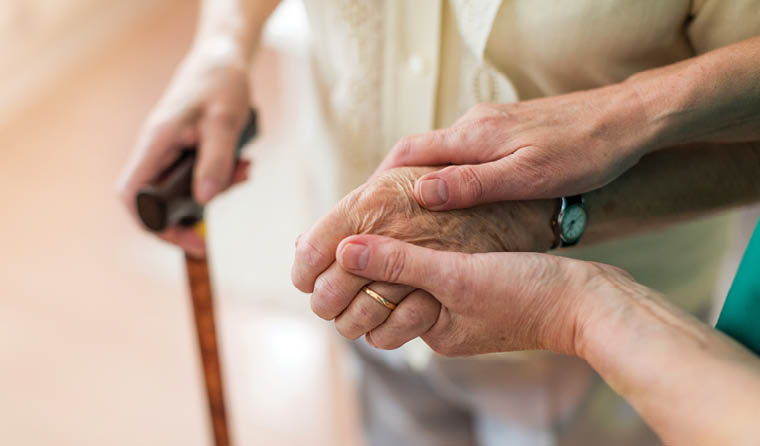Parkinson’s Disease Understanding, Managing, and Living with PD

In today’s Sharing Circle of Wellness, a project of the Hindu Society of Manitoba, we
had the privilege of hosting Dr. Ankur Wadhwa, a young, bright, and knowledgeable
medical professional, as our special guest. Dr. Wadhwa delivered a powerful and
insightful talk on Parkinson’s disease (PD), addressing numerous questions and
concerns with remarkable clarity and expertise.
Parkinson’s disease is a chronic, progressive neurological disorder that primarily affects
movement. First described by Dr. James Parkinson in 1817, the disease occurs when
nerve cells in the brain—particularly in an area called the substantia nigra—become
damaged or die. These cells produce dopamine, a chemical that helps control
movement. When dopamine levels drop, it leads to the symptoms associated with
Parkinson’s.
While Parkinson’s symptoms can vary from person to person, some common signs
include, Tremors: Shaking, usually in the hands or fingers, even at rest.
Bradykinesia - slowness of movement, making daily task harder and slower.
Muscle Stiffness: Limiting range of motion and making movement difficult.
Postural Instability:Difficulty
maintaining balance, increasing the risk of falls.
Other Symptoms:
Changes in speech, handwriting, sleep disturbances, depression, memory issues, and
loss of smell.
The exact cause of Parkinson’s is still unknown. However, factors such as age,
genetics, and environmental triggers may play a role. It typically develops after the age
of 60, though early-onset cases can occur.
Though there is no cure for Parkinson’s yet, several treatment options can help manage
symptoms and improve quality of life:
Medications: Levodopa, often combined with carbidopa, is the cornerstone of
Parkinson’s treatment, helping to replenish dopamine levels. Other drugs—like
dopamine agonists, MAO-B inhibitors, and COMT inhibitors—are also used to address
both motor and non-motor symptoms.
Surgical Interventions: In advanced cases, procedures like Deep Brain Stimulation
(DBS) may be considered when medications are no longer effective. Regular physical
activity can enhance mobility, flexibility, and balance. Activities such as walking,
gardening, swimming, or yoga can be highly beneficial. A balanced diet, rich in fiber and
fluids, helps manage constipation and supports overall well-being. While medications
provide relief, they may come with side effects such as nausea, drowsiness, low blood
pressure, or hallucinations. Adjusting doses or adding other treatments can help
mitigate these issues.
Daily activities—especially driving—require careful assessment of reaction time,
movement control, balance, and alertness. Occupational therapy or on-road testing may
be recommended if there’s uncertainty about one’s ability to drive safely. Support from
friends and family plays a crucial role in maintaining independence while ensuring
Diagnosing Parkinson’s is primarily based on medical history, neurological examination,
and a patient’s response to dopamine-based therapies. While no single test can confirm
Parkinson’s, additional tests like MRIs or DAT scans may help rule out other conditions.
Regular check-ups with healthcare providers ensure the diagnosis remains accurate as
symptoms evolve.
Managing Parkinson’s goes beyond medication. Techniques like structured breathing
exercises—such as box breathing—can help reduce anxiety, improve mood, and
enhance overall well-being. Additionally, joining support groups offers emotional relief,
practical advice, and a sense of community.
One of the most reassuring aspects Dr. Wadhwa highlighted is that individuals with
Parkinson’s often have a life expectancy similar to those without the condition. While the
disease progresses slowly, effective treatments, lifestyle changes, and strong support
networks can greatly improve quality of life. Each person’s journey with Parkinson’s is
unique, and with the right care, they can continue to lead fulfilling lives.
On behalf of everyone at the Sharing Circle of Wellness, I extend my heartfelt gratitude
to Dr. Ankur Wadhwa for sharing his knowledge and offering valuable insights into
Parkinson’s disease. His compassion and expertise have empowered us with a deeper
understanding of the condition, bringing hope and awareness to our community.
Let us continue supporting those affected by Parkinson’s with love, empathy, and
knowledge. Together, we can make a difference.
Yog Rahi Gupta
Freelance Writer
yoggupta@hotmail.com




Comments List